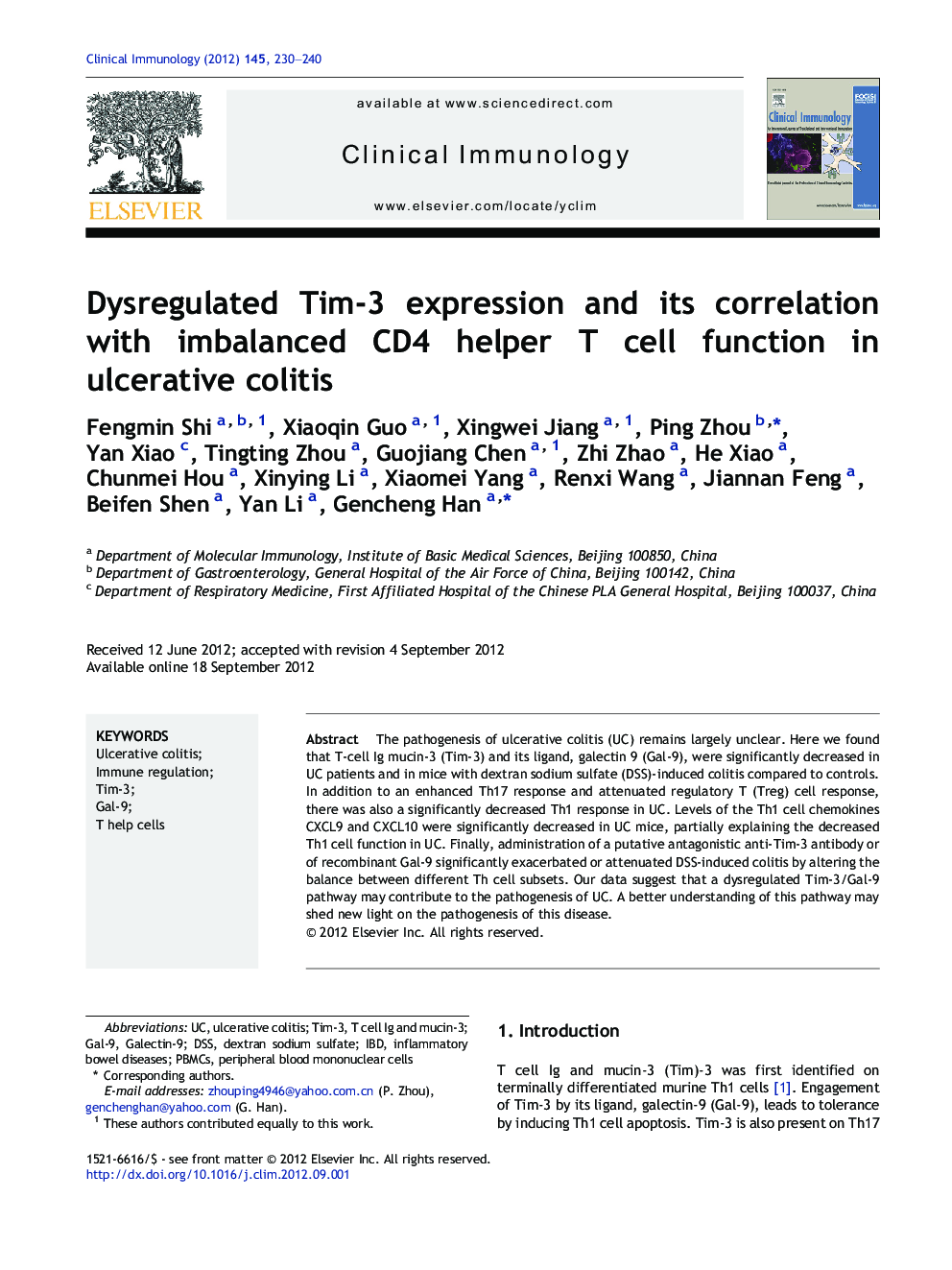| کد مقاله | کد نشریه | سال انتشار | مقاله انگلیسی | نسخه تمام متن |
|---|---|---|---|---|
| 3257064 | 1207389 | 2012 | 11 صفحه PDF | دانلود رایگان |

The pathogenesis of ulcerative colitis (UC) remains largely unclear. Here we found that T-cell Ig mucin-3 (Tim-3) and its ligand, galectin 9 (Gal-9), were significantly decreased in UC patients and in mice with dextran sodium sulfate (DSS)-induced colitis compared to controls. In addition to an enhanced Th17 response and attenuated regulatory T (Treg) cell response, there was also a significantly decreased Th1 response in UC. Levels of the Th1 cell chemokines CXCL9 and CXCL10 were significantly decreased in UC mice, partially explaining the decreased Th1 cell function in UC. Finally, administration of a putative antagonistic anti-Tim-3 antibody or of recombinant Gal-9 significantly exacerbated or attenuated DSS-induced colitis by altering the balance between different Th cell subsets. Our data suggest that a dysregulated Tim-3/Gal-9 pathway may contribute to the pathogenesis of UC. A better understanding of this pathway may shed new light on the pathogenesis of this disease.
► We identified a dysregulated downregulation of Tim-3/Gal-9 pathway in UC.
► There is an imbalanced Th cell, including unexpectedly decreased Th1 function in UC.
► There is a correlation between decreased Tim-3 expression and enhanced Th17 function.
► Blockade/activation of Tim-3 pathway altered the balance between different T subsets.
► Blockade/activation of Tim-3 pathway exacerbated/attenuated UC in mice.
Journal: Clinical Immunology - Volume 145, Issue 3, December 2012, Pages 230–240